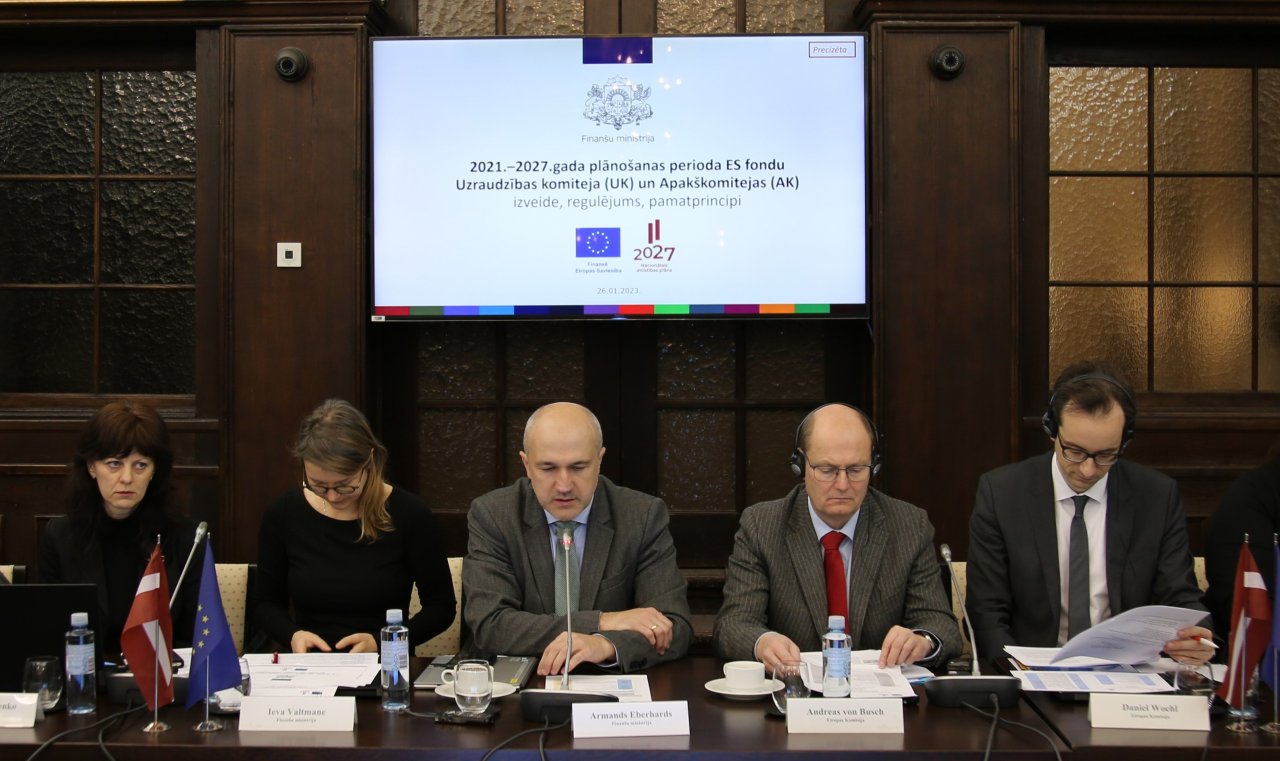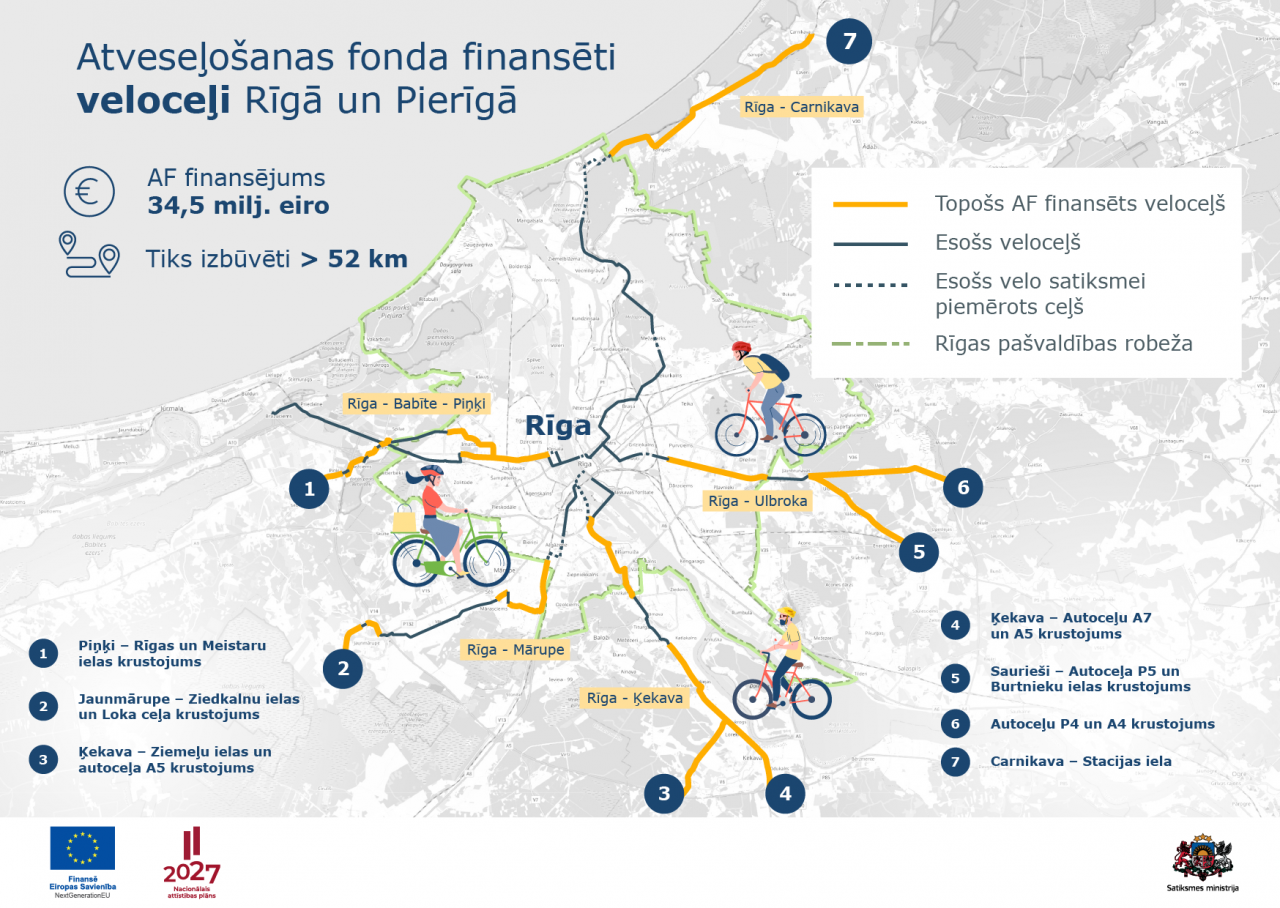Today, on January 26, at the meeting of the Supervisory Committee of the 2021-2027 planning period of European Union funds, 4.3.4 of the specific support objective "Promote active inclusion in order to promote equal opportunities, non-discrimination and active participation, as well as improve employability, especially for disadvantaged groups" 4.3.4.6. the specific evaluation criteria of the project submission of the measure "Improving resocialization services for probation clients and development of justice restoration approaches, promoting the active participation of probation clients in society's processes and creating prerequisites for their successful inclusion and employability".
With 2021-2027 The Ministry of Justice continues to implement the functions of the responsible institution during the planning period of the European Union's structural funds. Within the framework of the European Social Fund Plus, one of the measures under the Ministry's control is measure 4.3.4.6 of the specific Support objective 4.3.4. "Improving resocialization services for probation clients and development of justice restoration approaches, promoting the active participation of probation clients in society's processes and creating prerequisites for their successful inclusion and employability".
The project submitter within the framework of specific support is the State Probation Service - a direct administrative institution that implements the state policy in the execution of criminal punishment - community service - and coercive measures of an educational nature - community service - as well as in the supervision of probation clients and correction of social behavior.
The purpose of the event is to improve the efficiency of the resocialization system, thus, by developing the approach of restoring justice, promote the active participation of probation clients in society's processes and create the prerequisites for successful inclusion, equal opportunities, active participation and employability of probation clients.
Alleviation of poverty and social exclusion is identified in the Program as one of the biggest challenges, taking into account that the proportion of the population at risk of poverty or social exclusion in Latvia is one of the highest in the European Union. Certain groups, such as prisoners and probation clients, face an increased risk of poverty and social exclusion and long-term unemployment.
Regulations of the minister's cabinet on June 13, 2022 no. 413 Resocialization Policy Guidelines 2022-2027 were adopted, which are the bearers of the ideas of the third stage of resocialization policy development, continuing the development started in the previous stages. They envisage a deeper and more targeted focus on the integration of prisoners and probation clients into the society, promoting the flexibility of resocialization work and adapting work methods and services to the individual and highly dynamic needs of prisoners and probation clients. In the second stage of the development of the resocialization policy, which coincides with the ESF 2014-2020. In the first period, provision of high-quality and validated general resocialization tools for work with clients was ensured, while in the third stage special attention is paid to work with specific target groups (for example, persons with mental health problems, addicts, women, children and young people), execution of criminal sentences ( resocialization work) efficiency studies, as well as the importance of the professional training and resilience of the staff of the Prison Administration and the , and the State Probation Service appropriate infrastructure as a prerequisite for a successful resocialization process.
In the guidelines of the resocialization policy, taking into account the competence defined in the laws of the Prison Administration and the State Probation Service, as well as the very strict assumption that after the execution of criminal sentences (and the resocialization process) the person's integration into society continues in accordance with the current laws and regulations and the competence of the institutions, the goal of the resocialization policy is determined - reduce the risks of criminal behavior for prisoners and probation clients during the execution of the sentence, thus creating prerequisites for the successful integration of the person into society after the end of the sentence, incl. for active participation in society's processes (also in the field of employability).
The direct target group of the resocialization policy is prisoners and probation clients, but in foreign research and practice, the opinion that the execution of sentences cannot be limited only to work with the offender is more and more prevalent, because it is the family and support persons that are the resource that provides the necessary support for a person's law-abiding life in society after serving the sentence. Considering the above, the indirect target group of the resocialization policy is family members and support persons of prisoners and probation clients.
In order to achieve the goal of the resocialization policy defined in the Guidelines, the Guidelines include specific indicators and tasks structured in four mutually agreed and related directions of action:
1) continue to improve resocialization work with prisoners and probation clients according to the challenges of the changing environment, incl. for new target groups, as well as introducing a system for measuring the effectiveness of resocialization work (execution of criminal sentences);
2) to ensure the availability of personnel appropriate to the new needs of resocialization in prisons and prisons, incl. also regarding volunteers and associates;
3) provide adequate infrastructure for the needs of the execution of the sentence, incl. necessary e-solutions;
4) strengthen the role of local governments and NGOs, including by creating awareness of the role of each sector in preventing repeat offenses, educating and providing support measures to NGOs, local governments and other institutions, thereby promoting the public's readiness to receive a person after serving a sentence and promoting the person's active inclusion in society processes, incl. employability.


